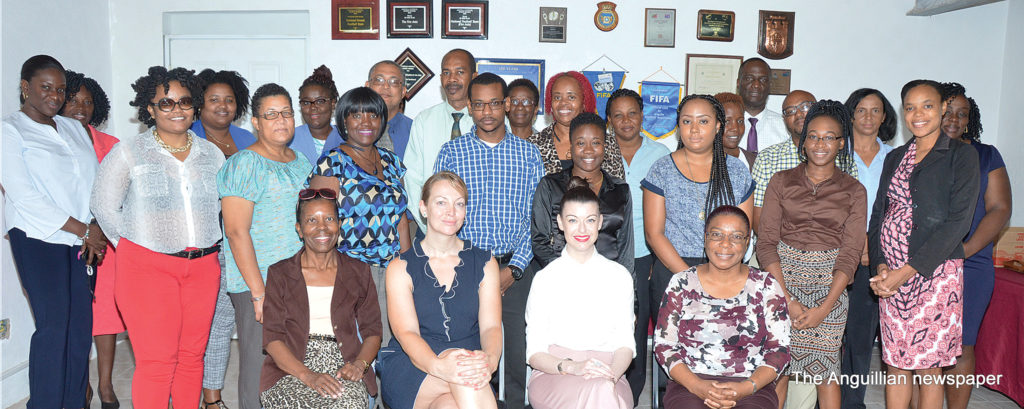
On Monday July 8th, the Department of Social Development, under the auspices of the Ministriy of Social Services, on Monday July 8th, embarked on a series of training sessions for developing the skills and competencies of social workers, care workers, and probation staff within the department.
Though the sessions cover a range of multi-agency training in the area of domestic and family relations, emphasis is being placed on equipping care workers with the correct approach in dealing with the needs of children who are at risk, and providing for their wellbeing. The sessions focus on responding to domestic violence; responding to child sexual abuse; and engaging with children and their families.
Facilitating the training sessions are Ms. Sarah Rothera and Ms. Natalie Wyatt of the public body CAFCASS in the United Kingdom. CAFCASS, (Child & Family Court Advisory and Support Service) is a non-departmental public body in England set up to promote the welfare of children and families involved in family court. It was formed in April 2001 under the provisions of the Criminal Justice and Court Services Act of 2000, and is accountable to Parliament through the Ministry of Justice.
Sarah Rothera is an independent consultant. She is the Programme Lead for the British Overseas Territories and specializes in the safeguarding of at-risk children. She supports the development of safeguarding services under the CAFCASS umbrella, and facilitates training, coaching, and policy protocol. Natalie Wyatt is the National Improvement Manager for CAFCASS.
According to Ms. Rothera, “At CAFCASS, we can be quite flexible in how we support the territories. We provide a wide range of services including training, coaching and train-the-trainer programmes. Our aim is to build capacity and social care resource personnel within the territories. In light of this, we want to be guided by the territories themselves as to what they feel their needs really are.”
The training sessions continue into next week with focus on the wellbeing of vulnerable children. Participants have expressed that at the end of the sessions their goal is that their knowledge of child protection and engagement with families would be enhanced.







